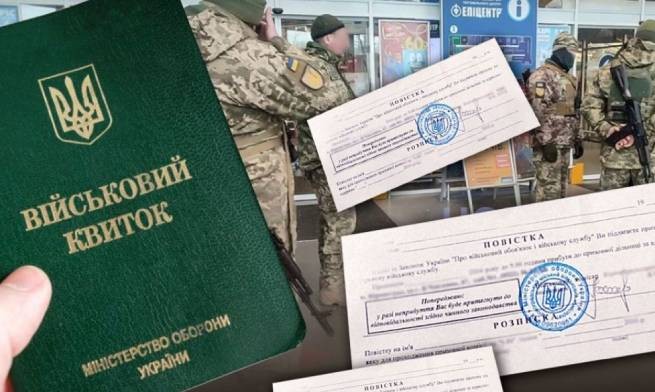The Verkhovna Rada is deciding how Ukraine will protect against mobilization. Two options are being considered, and debates have already arisen in society on this issue.
The Mobilization Law stipulates that the government must review the procedure for reserving military personnel. David Arakhamia, head of the Servant of the People faction, said that the Rada is considering two models of economic protection from mobilization:
- The first option provides for the possibility of booking an employee upon payment of salary tax of at least 35 thousand hryvnia.
- The second model is quota reservation by industry, from 10% of those liable for military service. In this case, the manager will independently decide who should be booked. For these people, the minimum military salary must be paid monthly, which is now 20 thousand hryvnia.
The Ukrainian budget currently does not have enough money to provide salaries for the military, and the state cannot retain fighters through international assistance, so concepts of reserving workers from mobilization by paying certain funds are being considered. Economist Sergei Fursa explains:
“War is very expensive, and Ukraine must finance it from its own resources. Therefore, the state must be effective, first of all, reject any populism and be effective.”
People's deputies are inclined towards the second option, which includes a separate additional fee, because it is easier to calculate and administer.
Arakhamia noted that the experience of other countries was studied on the issue of booking, but whatever solution is chosen, “there are many people who are in favor, and there are those who are against: “Somewhere in the middle, I think it’s all the same some model will emerge because in these discussions some model will emerge that causes the least outrage.”
The main complaint of society about economic armor is the statement that then only the poor will fight. For example, the deputy commander of the 3rd separate assault brigade of the Armed Forces of Ukraine, Maxim Zhorin, sharply criticized the authorities’ proposal to make reservations possible for those who officially receive more than 35 thousand hryvnia, quotes “Correspondent” publication: “Instead of changing the approach to recruiting and training, they decided to legitimize the principle of “war only for the poor.”
Yuriy Gudymenko, a war veteran, head of the Ukrainian Association of Dreams NGO, recalls examples from history when the “war for the poor” did not bring anything good to countries:
“This is not a new idea. Several countries in history tried to implement it and it usually ended the same way: ordinary citizens understood that now the war was only for the poor and were alienated from it, they stopped perceiving the war as their own. As a result, problems with mobilization, the growth of protest moods, riots. For those interested in examples, google Draft Week – this is the name of the riots in New York during the American Civil War. One of the reasons for the riots was dissatisfaction with commutation payments – the opportunity for wealthy people to pay $300 (a lot of money at that time) not to go to the army. , and send another person in your place. Well, just watch Gangs of New York, the film ends with these riots. The second argument is psychological. We must be a united society, with common challenges and working together to overcome them. it was at the end of February 2022, when we all helped each other, when factory workers and plant owners, IT specialists and mechanics, students and people of retirement age stood one after another in the queues at the military registration and enlistment office.”
The veteran believes that solving the problem of filling the budget by preventing richer people from going to the front is an ineffective solution to the problem:
“It is more effective to carry out judicial reform, simplify the tax system, promote transparency and ease of doing business, attract foreign investment and ultimately ensure that specialists in something, for example, in logistics, have the opportunity in the army to do what they can do best “This will give a plus to economic growth without the minus of social tension. Although, of course, it is much easier to pass any idiotic law than to carry out any systemic reform. And the consequences are not today, but tomorrow. And when will it come tomorrow, right?”
Economist Fursa suggests looking at this issue from the other side: “If one person pays taxes and another avoids paying them? We know that a lot of people in Ukraine work unofficially and pay little taxes. Is this true? Probably not. Therefore, such criteria justice is immediately shown through taxation.”







More Stories
Ukraine: 5,000 prisoners ready to go to the front
WP: On May 10, the first day of the Russian offensive in the Kharkov region, the Ukrainian Armed Forces lost their Starlink terminals
The Ministry of Foreign Affairs of Ukraine resumes consular services for men abroad with certain changes